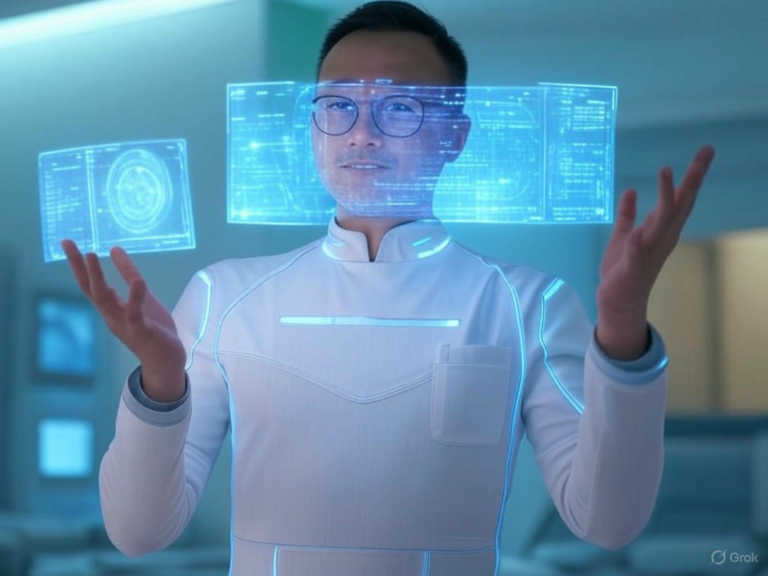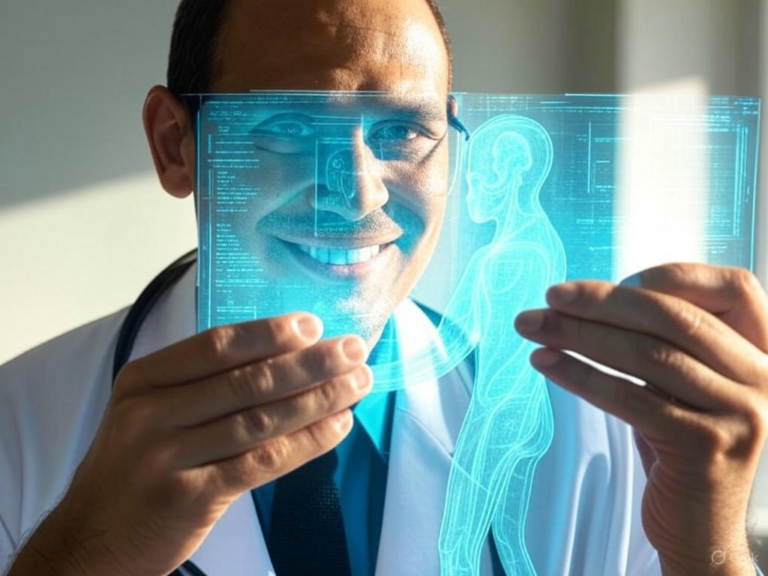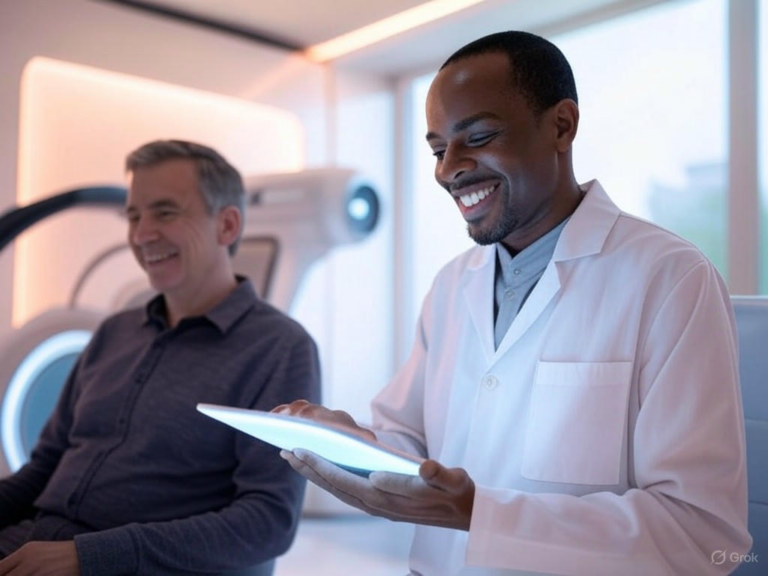
AI in Medicine Expands: Pitt Secures $10 Million Grant
The Rise of AI in Medicine: A Game-Changer at the University of Pittsburgh
Imagine a world where catching diseases early could save thousands of lives— that’s the promise of AI in medicine today. The University of Pittsburgh is at the forefront, securing a $10 million grant from Leidos, a tech giant known for its innovative solutions. This investment isn’t just about funding; it’s about accelerating tools for earlier disease detection, sharper diagnostics, and smarter patient care, building on a partnership that’s already invested $37 million over nearly two decades.
Have you ever wondered how AI could transform something as routine as a doctor’s visit? With this grant, Pitt’s researchers are developing AI-driven systems that analyze medical data faster than ever, potentially spotting issues like cancer or heart disease before they escalate. This leap forward highlights how AI in medicine is evolving to make healthcare more proactive and personalized, impacting not just Pittsburgh but communities worldwide.
Details of the Leidos-Pitt Partnership in AI for Medicine
Leidos’ $10 million commitment is channeling resources into Pitt’s Computational Pathology and AI Center of Excellence (CPACE), a hub for cutting-edge work. This five-year plan zeroes in on creating AI tools that tackle key challenges in healthcare.
For instance, the initiative will focus on rapid disease detection, cutting down wait times for results, and expanding digital pathology capabilities. Think about how this could help in everyday scenarios: a patient gets a scan, and AI quickly identifies anomalies, leading to timely interventions. It’s all part of a broader effort to advance AI in medicine by integrating technology with real-world applications, from local clinics to global health systems, while also training the next wave of experts through educational programs.
What makes this partnership stand out is its dual emphasis on innovation and accessibility. By fostering hands-on learning opportunities, it’s not only pushing technological boundaries but also ensuring that AI in medicine benefits everyone, including underserved populations.
Advancements in AI for Medical Diagnostics and Beyond
At its core, AI in medicine is about harnessing data to make diagnostics smarter and more efficient. Using massive datasets from imaging scans and pathology slides, AI algorithms can uncover patterns that human eyes might miss, leading to earlier interventions.
Consider a hypothetical case: A pathologist reviews a tissue sample, and AI assists by highlighting subtle irregularities, reducing errors and speeding up the process. This isn’t science fiction—it’s happening now at Pitt, where the grant is funding tools to support accurate decisions in conditions like cancer. By automating routine tasks, these systems free up professionals to focus on complex cases, ultimately improving patient outcomes and streamlining workflows.
But how does this affect you? If you’re dealing with a health scare, faster, more precise diagnostics could mean the difference between catching a problem early or facing complications later. Pitt’s work exemplifies how AI in medicine is making healthcare more reliable and less overwhelming.
Key Focus Areas: Driving Innovation in AI and Healthcare
1. Pioneering Digital Pathology with AI
Pitt’s Digital Pathology Research Center is getting a major boost from this grant, enabling AI to analyze digital scans with incredible detail. Researchers are training algorithms to detect cellular changes at a microscopic level, which could revolutionize how we approach disease diagnosis.
This means faster insights for doctors and potentially life-saving outcomes for patients. It’s a prime example of how AI in medicine is turning raw data into actionable intelligence, making diagnostics more accessible and effective.
2. Enhancing Imaging and Diagnostic Techniques
The partnership is also investing in advanced imaging technologies that integrate AI for better interpretation of medical images. From MRI scans to X-rays, these tools promise to set new benchmarks in accuracy.
Imagine AI flagging early signs of heart disease in a routine check-up— that’s the kind of progress we’re seeing. By refining these methods, Pitt and Leidos are elevating AI in medicine to new heights, ensuring diagnostics are not only quicker but also more precise.
3. Building the Future Workforce in AI-Driven Healthcare
Education is a cornerstone of this grant, with programs designed to train students in AI applications for medicine. Through internships and symposiums, participants will collaborate with experts, gaining practical skills in digital pathology and diagnostics.
This initiative addresses a growing need: preparing a skilled workforce for the AI era. If you’re a student or professional curious about this field, opportunities like these could be your gateway to shaping AI in medicine‘s future.
4. Promoting Equity in AI-Enhanced Healthcare
A key goal is to extend AI’s benefits to rural and underserved communities, including veterans and military families. By democratizing access to advanced diagnostics, the partnership aims to reduce disparities in care.
Here’s a tip: If you’re in a remote area, advancements like these could bring high-quality healthcare closer to home. It’s all about using AI in medicine to create a more inclusive system.
Benefits for Patients and Providers in the AI Era
Faster diagnoses through AI mean patients can start treatment sooner, which is crucial for time-sensitive conditions like cancer. Increased accuracy helps avoid mistakes, while personalized medicine tailors care to individual needs based on data analysis.
Take a moment: How would quicker results change your healthcare experience? Additionally, by optimizing workflows, AI could lower costs, making quality care more affordable. For providers, this translates to less administrative burden and more time for patient interaction, enhancing overall satisfaction.
These perks aren’t just theoretical; they’re already in motion at Pitt, showing how AI in medicine is delivering real-world value.
Looking Ahead: The Enduring Impact of AI in Medicine at Pitt
Leidos and Pitt leaders are excited about the potential, with statements emphasizing AI’s role in early disease detection. Liz Porter from Leidos noted this as just the beginning, hinting at broader applications that could transform healthcare globally.
As research progresses, expect to see new AI tools emerging that address everything from chronic diseases to preventive care. This partnership is a blueprint for how AI in medicine can foster innovation while prioritizing ethical and equitable practices.
So, what are your thoughts on these developments? Could AI change how you approach your own health?
Frequently Asked Questions (FAQ)
What is the main focus of the Leidos and University of Pittsburgh grant?
It centers on advancing AI in medicine for disease detection, diagnostics, and workforce training in areas like digital pathology.
How will this improve healthcare access?
By enabling quicker, more accurate diagnoses and extending services to underserved groups, promoting equity in AI in medicine.
What educational opportunities are available?
Students can engage in internships and programs that provide hands-on experience in AI in medicine, preparing them for future careers.
Conclusion: Embracing a New Era in AI-Driven Healthcare
With this $10 million grant, the University of Pittsburgh and Leidos are paving the way for transformative changes in AI in medicine. From faster disease detection to building a skilled workforce, their collaboration promises to make healthcare more efficient, fair, and patient-centered.
If this topic sparks your interest, I’d love to hear your insights in the comments below. Share this article with others who might benefit, or explore more on how AI is reshaping our world— your feedback could inspire the next big idea!
References
1. “Leidos Invests $10 Million in AI Disease Detection with University of Pittsburgh.” UTimes Pitt. Link.
2. “University of Pittsburgh Research Grant Cuts Leidos Inc.” Pittsburgh Post-Gazette. Link.
3. “Leidos and University of Pittsburgh to Spend $10M on AI for Disease Detection.” MobiHealthNews. Link.
4. “Leidos Invests $10 Million in AI Disease Detection with University of Pittsburgh.” Morningstar. Link.
5. “Leidos, University of Pittsburgh Partnership for AI Usage in Medicine.” CBS News Pittsburgh. Link.
6. Virginia Company, University of Pittsburgh Investing $10M in AI Tools. PennBizReport. Link.
7. Additional insights from Hypotenuse AI and related sources.
AI in medicine, University of Pittsburgh, Leidos partnership, digital pathology, disease detection, AI grants, healthcare innovation, medical diagnostics, workforce development, equitable healthcare







